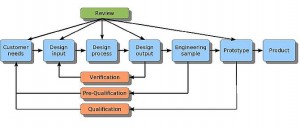
1) What goes up MUST come down – I know it’s obvious but some people really believed it was possible for an economy to grow at 7% per year indefinitely – just ask the punters on the Shanghai Index.
2) Gordon Brown didn’t abolish boom & bust – but then we all learned that 7 years ago. Capitalism, for all its pros & cons, is inherently cyclical.
3) Every Market is interconnected – more so now than ever before, any crisis in China will be replicated to one extent or another around the globe.
4) No Government controls the market – whether its the State Capitalist Chinese or the Western Democracies – intervention is limited in its affect.
5) Transparency is a concern – Is the Chinese economy still growing at 6%, 5% or much less – no one knows & there is a distinct lack of trust in the data supplied by the Chinese government.
6) It will impact us all :- The Chinese economy is the second biggest market in the world & although exports vastly exceed imports the purchasing power of the Chinese middle classes will be severely curbed.
7) Social upheaval will follow – The political tensions in China will erupt (to one degree or another); The Chinese Government will struggle to keep a lid on the educated middle classes who have got used to continuous growth & increased wealth.
8) Capitalism is in crisis – as boom follows bust & vice versa Capital flows to the point of highest growth – leaving chaos in its wake.
9) What comes next ? – no one knows – but maybe we should be looking to develop a sustainable society based on full-filling human needs rather than continuously expanding Gross Domestic product ?
10) The sun still rises in the East, sets in the West & the world keeps on turning.
chris@amberhill.biz
www.amberhill.biz


Projectsguru.co.uk

Promote your Page too
 The implementation of IIOT (Industrial Internet of Things) is transforming industry in many ways & one of the most interesting is in enabling companies to manage carbon reduction strategies & in doing so to make processes more efficient in terms of cost, quality & most importantly energy usage.
The implementation of IIOT (Industrial Internet of Things) is transforming industry in many ways & one of the most interesting is in enabling companies to manage carbon reduction strategies & in doing so to make processes more efficient in terms of cost, quality & most importantly energy usage.








